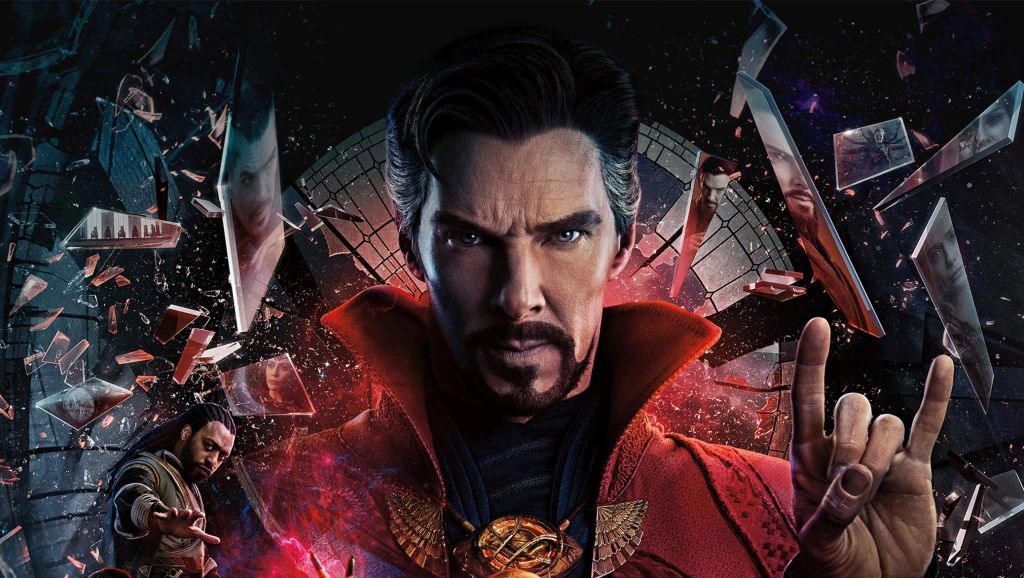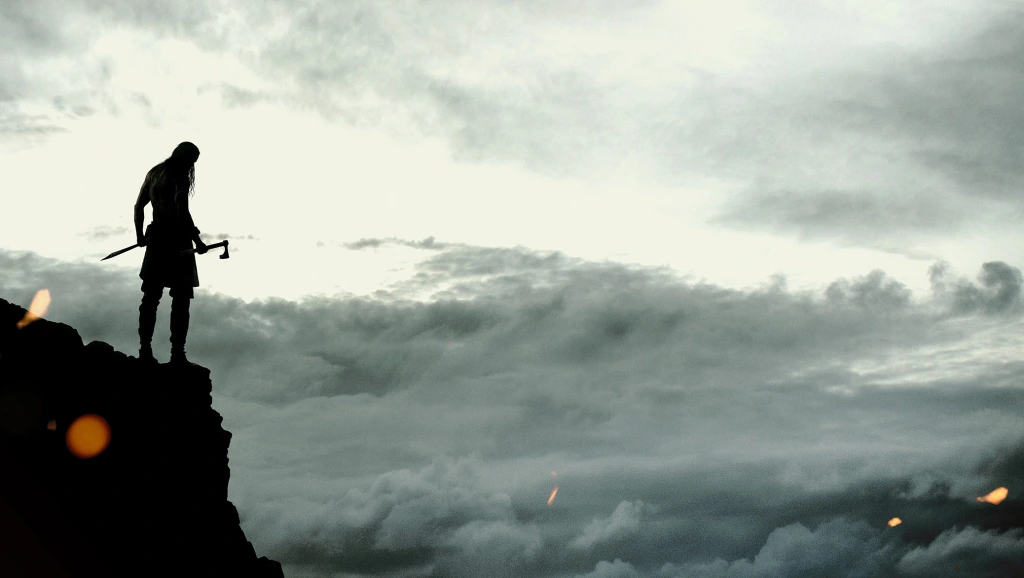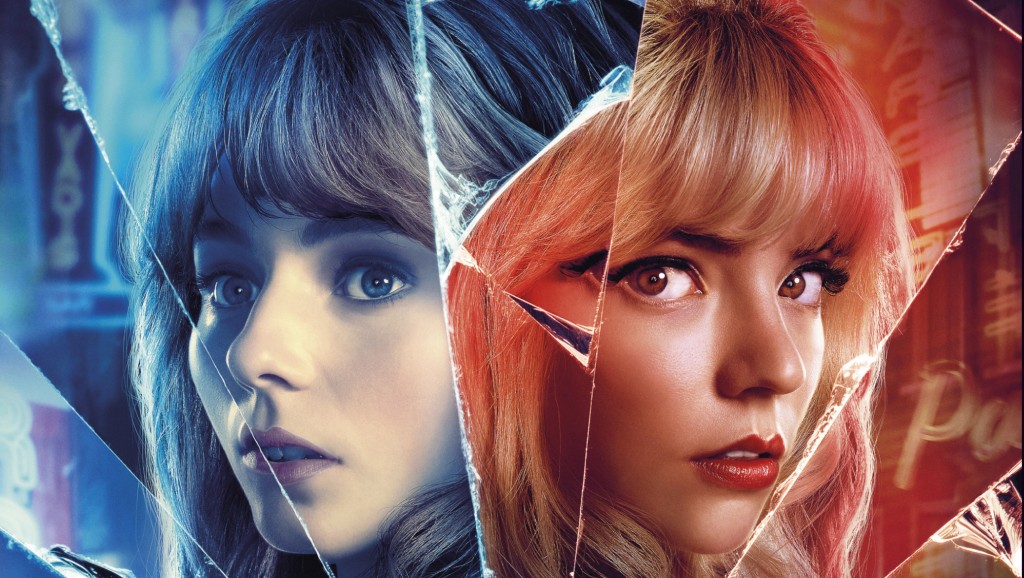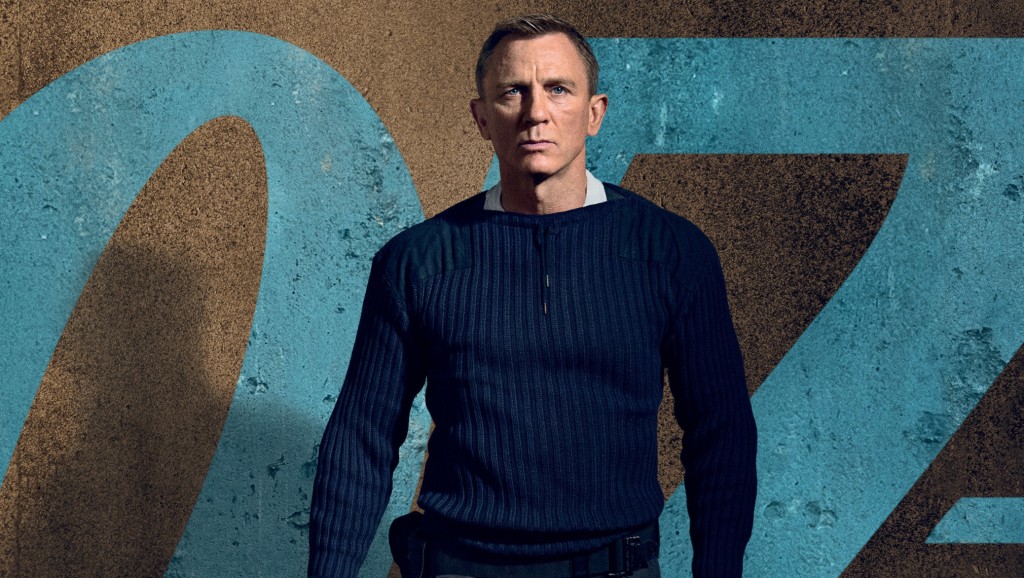
It’s easy to conclude that the Marvel Cinematic Universe has operated as a long running TV show. Each episodic entry has served to build context and introduce characters that would eventually serve a larger purpose. For all its talent, consistency and frequency, no other franchise can boast the level of success and volume that the MCU currently holds. No one.
Avengers: Infinity War is ten years in the making. Say it loud with me – TEN YEARS. Who would have thought that from its humble beginnings starting with Iron Man could culminate with an anticipated and long-awaited spectacle?
To put this into context, we have to travel back to 2008 and two months after Iron Man‘s release. Audiences were enamoured by Christopher Nolan’s The Dark Knight. Largely inspired by Michael Mann’s Heat, it was a game-changing film that revitalised the comic book genre. It grounded the fantastical of Batman’s story (with arguably the greatest comic book villain ever created) and juxtaposing the social and political context in a post 9/11 world. Chaos and fear were the only understandable language dominated in a world built upon a pyramid scheme of people controlling their own little powerful world (in which The Joker gleefully exposed). Yet going against the grain, Iron Man was unexpected, a blindsided success, overcoming various risks and hurdles just to make it to the screen (most notably securing Robert Downey Jr. as the lead). But as soon as the now infamous words “I’m here to talk to you about the Avenger Initiative” were uttered, the experimentation had begun and the rest is now cinema history.
Giving credit where it’s due, Marvel never changed its tack or resolve. Over the years where comic book films have experimented with different conceptual tones and interpretations (with mixed results), Marvel found an element that works for them, long accepting what kind of franchise they wanted to be – entertaining. It’s the kind of popularity that has made it accessible not only to the comic book community but to general audiences, both young and old. Yes, it’s incredibly formulaic and at times predictable (something that I’ve been very critical about in the past and subsequently contributing to a fatigue mentality with the genre). However, it’s that reassurance and audience demand that has given Marvel that unprecedented franchise dominance. With a few exceptions within the DC Universe (Wonder Woman in particular) DC / Warner have undoubtedly struggled to keep pace. Avengers: Infinity War is a faithful and fan supporting reward of that journey. Like all good and successful long running TV shows, it has been the combination of a collective, singular vision and management that has gotten us to this vital point in the story.

One can’t overstate the sheer magnitude of this film. Running at a hefty two hours and twenty-nine minutes, it is ambitious and epic as you could imagine with a story that has a visually sweeping landscape spanning galaxies and littered with the who’s who of the MCU. While the Russo Brothers have been tasked with the unimaginable mission to weave all the complexities and characters into a movie, they bring a grounded confidence to pull it off. It started with the impressive Captain America: The Winter Soldier with its Manchurian Candidate spy thriller that eventually evolved in scale with the geo-political Captain America: Civil War.
For most parts, Avengers: Infinity War largely works and has a lot to offer and take in, but it’s not without sacrificial trade-offs and mixed emotions.
This review is not without a complicated contradiction. The Marvel Cinematic Universe has been so deeply ingrained in the psych of current pop culture that to try and judge it rationally outside of the hype can be a difficult challenge. For instance, it’s hard to judge the overall impact when you only know half the story (Infinity War serves as part one). It’s a film that doesn’t quite work as a standalone (for obvious reasons) but rewards those who have completely engaged with its source material and the previous eighteen films in order to make this feel whole. It has a plot that is extremely wafer-thin that you could snap it in half with your bare hands and yet somehow still manages to be captivating. With no less than twenty-three characters on screen, there’s no need to reintroduce who Iron Man (Robert Downey Jr.), Black Widow (Scarlett Johansson) or Captain America (Chris Evans) are or let us know what they have been up to. But with such a huge cast all having their little moments to shine, most of the deep characterisation that you love from the previous template of films are abandoned for (at times) superficial, action-led, fan service moments. It’s a film that tonally balances out moments of seriousness and comedy but can also feel a bit erratic or as Mark Kermode recently said in a honest and respectful review, can feel as if you’re “channel hopping” as characters do their own collective thing to stop Thanos.
On a positive reflection, Avengers: Infinity War is the best you could hope for. If we take the TV analogy again, Infinity War is the cliffhanger, the penultimate episode with a Game of Thrones / ‘Red Wedding’ vibe. At this point in time it feels a bit of a stretch to say “season finale” when there’s still more to play with but that’s the level of stakes that this film brings to the table. But it’s also a film that plays up to its greatest strength and that’s through its humour. When you have so many characters with different personalities, it was a big worry at how this was going to be achieved and yet the little interactions between the characters does enough to hold its own. I could watch the Guardians of the Galaxy all day long in Infinity War over their disappointing sequel. Drax (Dave Bautista) in particular was a great return to form. And the more I think about it, I’m now 100% convinced that Okoye (Danai Gurira) from Black Panther must be in every movie from here on out. Her appearance was brief but instantly rememberable.
However, what really justifies Infinity War is Thanos (Josh Brolin).
“Fun isn’t something one considers when balancing the universe. But this does put a smile on my face.” – Thanos
Since his introduction in Avengers Assemble, Thanos has been teased like the back-seat passenger waiting for his moment to change the driving course of the MCU.
The interesting notion involving Thanos is how the Russo Brothers and fellow writers Christopher Markus and Stephen McFeely attempt to build an emotional throughput, especially when there’s so many instances all happening at the same time. Hand on heart, Thanos is not the best MCU villain. That crown still belongs to Black Panther‘s Killmonger (the outstanding Michael B. Jordan). His nuance and emotive delivery in re-telling of the history of black America, his militant activism to correct the years of oppression, painted a real life context embedded within the fantastical approach of comic book storytelling. Let’s not forget Loki (who sadly bites the bullet) has also set the standard for MCU villainy with his blurred morality and mischief. But when you have a character like Thanos, it’s hard to connect to someone who is simply hell-bent on world domination and destruction (from a general speaking term). There has to be more to him or otherwise, he would simply become a one-dimensional villain without substance. However, his introduction in Infinity War is far from being one-dimensional and does showcase and continue Marvel’s attempt at fixing a long-standing villain problem.

When you strip away most of the core meat that makes up Infinity War, this is very much Thanos’ movie. He sets the agenda and every single Avenger (as bit part as they were in most scenes) reacted to his menace. What really seals the deal with Thanos is his relationship with Gamora (Zoe Saldana) in arguably the best structural moments of the film. Not only do they get a clear developmental arc in a very convoluted arena but manages to test the boundaries of love, duty and sacrifice. If there is a seminal theme that Infinity War asks, then it’s simple – what would you do for absolute power?
Every villain doesn’t believe they are bad. Villains are essentially a rebellion against a system, an order or principle and intentionally uses their platform to illustrate why they’re right and yet that is the crazy psychology that Thanos holds himself to. His genocidal, megalomaniac tendencies are comparable to Nazi Germany – he is Hitler and the Black Order are the SS. Thanos’ plan is nothing new. Casting minds back to The Winter Soldier and the principle idea of protection was exploited when HYDRA compromised S.H.I.E.L.D. and Project Insight targeted the human population using the helicarriers. Thanos in this context is a physical and fantastical manifestation of what destruction of humanity looks like – the “Negan” of the MCU. He looks at himself as a liberator yet he’s also a murderer, re-enforcing Gamora’s painful backstory yet shelters her from that same pain. He clearly loves his adopted daughter yet has no issue in torturing her sister Nebula (Karen Gillan) to get to the truth. And when it came to the ultimate sacrifice for the soul stone (along with an unsuspecting cameo), it’s done with a reluctant hesitancy. It’s a clever, balancing dichotomy that allows us to see two conflicting sides of the coin and also opens the door for further analysis and interpretation. Without those scenes, the impact of Thanos would have been far too simplistic to even resonate, especially when it came to its final concluding moments.
It’s refreshing to see evil win for once. It subverts your expectations because we’ve been so conditioned to the “the good guys will always win” mentality that it can genuinely feel like a shocking surprise when that optimistic hope is taken away from the audience. For TV audiences, we’ve been ahead of the curve with that ideology…just ask any Game of Thrones fan!
Yet it is that surreal and idyllic peace that Thanos has succumb to. He fulfils a lifelong destiny (as suggested in one throwaway line about not missing another opportunity) by becoming a God but momentarily has to deal with the trauma of what his warmongering conquest has achieved. Seeing a young Gamora could poetically suggest of a character almost yearning for the “good old days”, where things were simpler, straightforward and innocent. In a generational era where we’re seeing more and more TV revivals (The X-Files, Twin Peaks etc), it is a moment that lovingly plays on our nostalgia of what we love and yet can deliver a re-conceptualised concept that will never be the same again. Thanos may have won the fight but has to count the emotional costs that come along with it.
“We kick names and take ass.” – Mantis
Infinity War is far from perfect and the one thing that dampens it is its ending. It’s a controversial point but as previously mentioned, this review is not without a complicated contradiction.
The way Thanos initiates that ending is brilliant. Brilliant I tell you. In a film that has endless battles and encounters where repetitive brute force seemed to be the only answer, Thanos responds with such a simple action that is easily taken for granted hence the magnitude of that scene.
But what undoes it is something I call consequential finality.
Death in comic book films are nothing new, something that Logan or The Dark Knight Rises know too well. It’s a symbolic moment because the death stands for something greater be it saving their daughter or saving the city so they have an inspirational hope of justice. But characters dying and coming back to life is like an everyday occurrence like breathing in the comic book world. But analysing specifically to the MCU, characters almost have this air of invincibility so no matter what the stakes are (and in Infinity War they are game-changing), the sensation of death is used for shock value that never seems permanent. Whatever happens can be easily undone.

It’s a repeated and tired Marvel formula. In The Winter Soldier, Nick Fury (Samuel L. Jackson) *died* and came back to life. In Avengers Assemble, Agent Coulson (Clark Gregg) *died*, came back to life and was rewarded with his own TV show! In Iron Man 3 Pepper Potts (Gwyneth Paltrow) *died* but was saved by her exposure to Extremis. Rhodes (Don Cheadle) was paralysed as a consequence from Civil War but seems to have no painful affliction with the help of Stark technology enabling him to walk again. It’s not necessarily a death but the death of Tony and Steve Rogers’ relationship in Civil War would have left something to dramatically ponder if it wasn’t undone by Steve’s letter to Tony at the end of the film. Loki (Tom Hiddleston) – lost count how many times he has *died* but Thor and Thor: The Dark World are obvious examples. Infinity War wipes out 50% of the population including some notable Avengers but with time stone, everything can reset like a back-door entry. Even Tony Stark was viscously stabbed by Thanos only to patch himself up a few scenes later (although the extent of his injuries could still be grave).
It can feel like a sad, subjective case in understanding whether death actually means anything, second guessing whether the stakes raised are conclusive. I personally believe it has but at this point it begins to feel like ‘The Boy who Cried Wolf’ scenario or the equivalence of the Game of Thrones showrunners (David Benioff and D.B. Weiss) emerging from behind a curtain during the ‘Red Wedding’ scene telling [REDACTED] to wake up. Your horrific stabbings were just flesh wounds. Now do like Taylor Swift and just “Shake it Off”.
That sort of establishes my ultimate feeling about the film. It’s not to say it’s overly terrible (which is FAR from it) or a masterpiece (which feels a bit of a stretch where some are already declaring THIS IS THE GREATEST MOVIE EVER!!!!). But it does take away an emotional and consequential impact that Marvel wanted us to feel for such an important moment. Because however painful and shocking it was (a feeling that will never disappear as a cinematic experience), it was also a moment that somehow left me hollow.
We also live in a culture where the endless theorising about what xyz film could have in store that you’re almost swimming in a sea of spoilers, losing a bit of that fun and unpredictability. Again, that point is open to scrutiny but imagine if Tony *did* die in his fight with Thanos (despite Dr. Strange (Benedict Cumberbatch) possibly foreseeing Tony need to survive). Imagine if Marvel had kept their future MCU projects silent so you didn’t know if characters were coming back or not. Imagine how much that gut-wrenching pain would have been felt if it had crossed that line?
The enjoyment of the film really comes down to how much you’ve personally invested in these characters. If you had invested in Vision (Paul Bettany) (personally I didn’t but he had an absolute cruel death), then his death matters. If you invested in Loki (which I did) then his death matters. If you invested in both Black Panther (Chadwick Boseman) and Spider-Man (Tom Holland) (YES and YES) then their death does matter but gradually loses impact when you realise they both have upcoming sequels! Gamora’s death stuck because of her developmental arc as the major consequence of Thanos tyrannical behaviour. But it will come as no surprise if that is undone as well.
The honest truth is the Marvel Cinematic Universe is a bit like The X-Files. Both have the flexibility to tap into the larger picture (the mythology) but can tell those non-conforming genre or standalone stories. But the more I push myself, the more I’m incline to say I prefer those personal standalone stories because that’s where those heartfelt values resonate. Captain America in Infinity War (obvious statement alert) wouldn’t be the person who he is without those defining films yet his voice is what I missed the most in Infinity War.
If I were to rank Infinity War, it wouldn’t dethrone personal favourites such as The Winter Soldier, Black Panther or Iron Man. Not yet until we see how this concludes and I think that is fair and acceptable. It would be like judging the entire Harry Potter franchise on The Deathly Hallows: Part 1. Of course, a lot of my points can be addressed when May 2019 comes along. As some reviews have pointed out, maybe we should be worried who’s left out of the Avengers instead of the ones fading to ash. We are left with the original line-up and therefore the consequences might be greater as well as provide the necessary closure. With Ant-Man and The Wasp, an AWOL Hawkeye (Jeremy Renner) and the upcoming Captain Marvel movie, we still have to wait and see how vital their parts are. But the points I’m mentioning are a valid observation because whether we like it or not (because of its serialised TV storytelling), properties are judged on their legacy.
Time will only tell how Infinity War measures up – now, in three months or in one year. We are at the endgame with this current storyline and the possibilities can go in many directions. But that consequential finality does need to be reinforced to feel that true reward for the franchise.
Despite the distracting issues I had with the film, it doesn’t take away the overall quality or the achievements that Marvel has already established. It’s a film that I still immensely enjoyed and Avengers: Infinity War is a unique celebration.
One can only hope that Avengers 4 can match those ambitions and given the scale of this film, that shouldn’t be a problem.






Don’t Be Shy – Leave a Reply